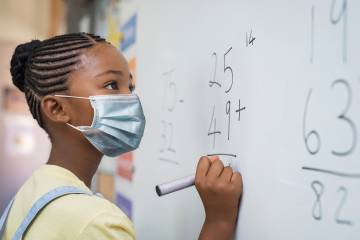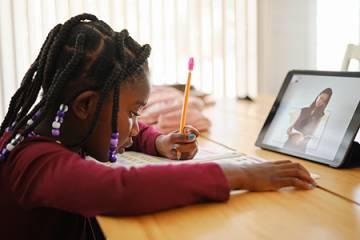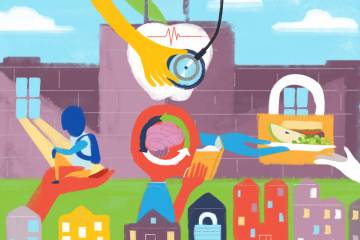Three Johns Hopkins experts published an op-ed today in The Baltimore Sun calling for a federal blue ribbon commission to evaluate and advise on plans to reopen K-12 schools across the United States. The need to reopen schools is dire for the country's most vulnerable students, who do not have access to the homeschooling, tutoring, and "microschooling" options that have arisen during the coronavirus pandemic, the authors write.
"The longer that this pandemic persists unabated without a national plan for reopening our nation's schools, the greater the prospect of permanent disruption to the well-being of our most vulnerable children and to the landscape of public education as we know it," write Annette Campbell Anderson, assistant professor at the School of Education; Megan Collins, an assistant professor of ophthalmology at the School of Medicine and co-founder and co-director of the Johns Hopkins Consortium for School-Based Health Solutions; and Ruth Faden, a professor of biomedical ethics at the Bloomberg School of Public Health and founder of the Johns Hopkins Berman Institute of Bioethics.
Also see
The authors propose a commission made up of parents, teachers, students, district administrators, school design experts, ethicists, public health officials, and others to examine best practices from schools in the U.S. and around the world that have successfully reopened and to identify key areas where more data and evidence are needed. According to the authors, a blue ribbon commission could examine issues such as:
- Investing in personal protective equipment for students and educators
- Allocating financial resources for hiring testing and contact tracing staff for schools
- Establishing a federal tracking database of transmission in schools
- Evaluating longer-term recommendations about permanently reducing the density of students in existing schools to improve both learning outcomes and student well-being
- Addressing the challenge of teacher shortages that the authors say is exacerbated by the pandemic
- Ensuring that American children have equal access to the technology, affordable telecommunications services such as Internet service, and digital learning skills to allow them to regularly learn online for at least some portion of the school day
These are critical issues to address now, and they will remain vital issues in the American education system long after the coronavirus pandemic is resolved, the authors write.
"The coronavirus has potentially disrupted learning for a generation," they write. "Not only do our children, their families and our educators deserve this investment to make a solid course correction, America's future depends on it."
Read more from The Baltimore Sun










